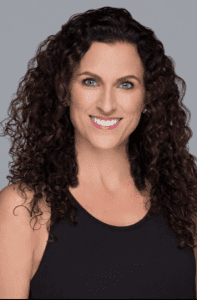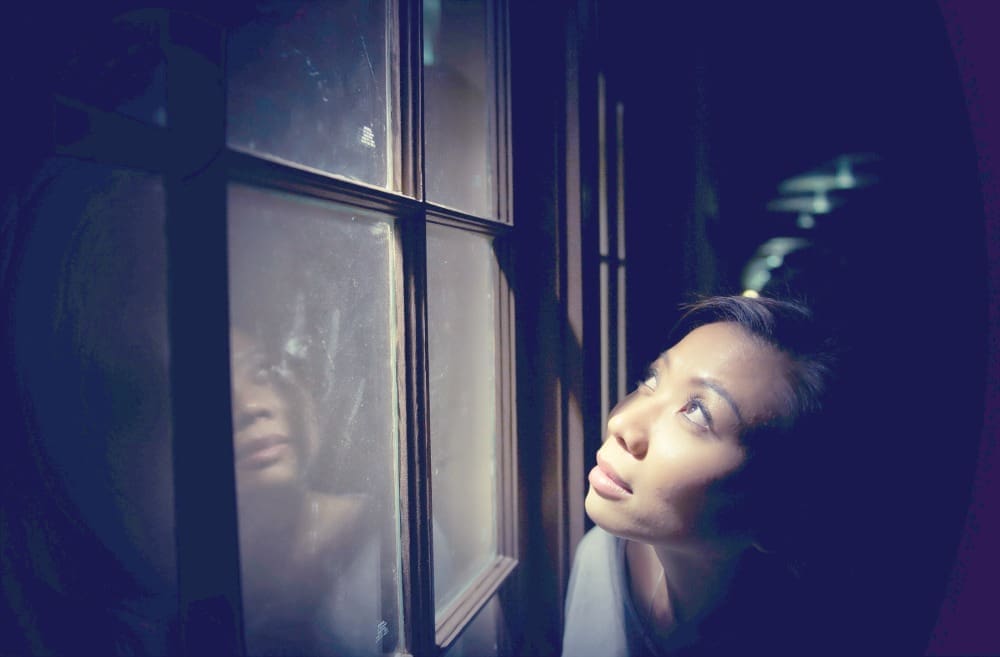In this blog, I’m going to encourage you to examine how you respond to fear?
How does it operate in your life?
How does it hold you back?
How does it move you forward?
How do you use fear, as a source of fuel?
How does it keep you in relationships and dynamics?
How does it participate in the status quo?
I’ll be frank, for most of my life I have had an intimate relationship with fear. If I am honest, fear was my most trusted guidepost. In my career, I have used fear as one of my primary sources of fuel. I used fear of failure to dig deeper and embrace the pain cave of ambition and drive. Leveraging the upside of cortisol, adrenaline, and dopamine, I used this neurobiological cocktail to access motivation, discipline, and relentlessness.
Fear was the first of many neurochemical highs I would chase throughout my life. It was hard for me to give up this style of orbiting in the world because it was “successful” in many ways. In the years in which I was in the vice grip of this unconscious pattern, I achieved a lot of really great “things”-college, masters, and doctorate.
But just because something is successful doesn’t mean it’s healthy. Achievement and success don’t insulate us from using toxic and short-burning fuel sources. Eventually all cheap fuel sources lead to burnout or breakdown (think adrenal fatigue and emotional exhaustion).
By the end of this blog, I hope you will reconsider your relationship with fear and let it, once again, takes it’s place among the pantheon of other feelings we experience that participate in transforming our lives and shaping our trajectory. I want to encourage you to let fear take the ranks with our other intense emotional experiences such as intuition, love, and curiosity.
Here’s the thing though, fear isn’t intoxicating like love, or adventurous like curiosity, or even grounded like intuition.
Fear is bold, it’s intrusive, and it disrupts. So disruptive is this feeling that we are often “taught” or modeled (read: imprinted) that we must numb it, suppress it, repress it, deny it, or avoid it (this is a huge tendency with fear. To read about avoidance click here). At all costs, silence that feeling.
And so begins the journey where we rate, and judge, and collate our feelings on a scale of good and bad, scary and not scary, healthy and unhealthy. These cognitive structures (the thinking about feeling part of being human) then serve to shape and herd our trajectory through the defense mechanism we use, to the interactions we allow our self to participate in, to the risks we are willing to take in order to self-actualize.
Fear especially gets a bad wrap nowadays, with the movement towards (forced) positivity and gratitude. It’s often discussed as something we need to overcome, silence, medicate, or ignore it in an effort to “manage” fear.
In my office, I see it all day long. It’s easy to cast fear out, use avoidance, or other defense mechanism that keep us distant from its intensity…booze, sex, drugs, denial, masochism, suppression, repression, and on and on, in my office (and in my life) it’s all the same.
So let’s define fear.
Fear is a feeling. Nothing more. Nothing less. It’s a state of awareness that alerts our brain and body to danger. From a neurological perspective, it is thought to originate in the Amygdala and then, like the brain is so eloquent at doing, it rallies and initiates a complex and cascading network of other neurological centers.
The feeling of fear communicates with our body (heart pounding, butterflies in stomach, pupils dilate) and our thoughts or cognition (holy shit, I am in danger, etc.). In this way, fear is a primal indication of our mind/body/brain connection, as it initiates networks of dialogue that were, moments earlier, dis-integrated (or disconnected). Fear is your friend. It’s your greatest teacher. Fear, like pain, participates in keeping us alive.
We all know the overt and obvious ways that fear operates, such as phobias, panic attacks, and the like. But in this blog we are going to examine the covert language of fear. You see, fear is also a master of disguise. It cloaks itself in other more seductive costumes, like bravery, perfectionism, arrogance, anger, people pleasing, FOMO, and adrenaline junkies (to name only a few). Often the very parts of our personality we are most wedded to are derivatives of fear. And most of the time, because of the power of the unconscious, people are completely unaware of how these dynamics operate in their life. (Click here if you don’t already know my stance on the unconscious or need to be convinced of its existence.)
Let me unravel this for you in a concrete way. Because I was someone who felt compelled to move towards my fears, thus why I didn’t develop a phobic personality style, I was considered, and I suppose at some level I am, brave. Fear is a pre-requisite for bravery. It isn’t brave unless you feel afraid, right? For me, I liked that association. I felt good about being considered brave. Brave felt like a really close cousin to strong, and strong felt like it held the promise of being invincible, and invincible felt like it was close to…wait for it…perfection. When I traced my fears back to their origin, for me, there was often the fear of not being “perfect.” It wasn’t until my early twenties that I began to unpack this contract I had with fear, perfectionism, and bravery.
If you are someone who thrives on the feeling of conquest, if you enjoy the hunt, feel seduced by achievement, if you are drawn to adrenaline, thrive under pressure, you’re likely burning more toxic energy than you think (or feel), generated by complex and (often) unconscious efforts to circumvent or control your response to fear. You won’t be able to sustain this pace and fuel source endlessly. Sure you can white knuckle it for a while. But eventually, you will burnout or your vessel will breakdown.
In fact, a lot of the psychiatric symptoms that come through my door are actually more related to the fact that we have become so intolerant of our feelings, most especially the ones that we deem bad or too intense. Fear holds a special place in this ranking, because it is so primal, because it is so bold.
But here’s the thing-If you want to liberate yourselves from the patterns that bind you to an orbital pull that no longer serves your best self, you must navigate towards those feelings. Then you must sit. You must listen. You must tolerate a certain degree of discomfort. No challenge, no change. That’s how this works.
Any person, program, book, or course that promises you growth and evolution, without the need to develop the capacity to tolerate a diverse emotional landscape (emotional pluralism)—and that means pain, hurt, grief, sadness, anger, and yes, even fear, is selling you a bunch of bullshit. Buyers beware.
There, I said it.
I know what you are thinking, okay, so what do I do to change this dynamic?
I’m already hundreds of words over the suggested blog word count, so I am going to keep this simple.
Start with just observing your interior world. Carve out ten minutes a day to just be in your own skin and bones. No technology. No music. No special breathing techniques. Nothing. For god sakes, please don’t try to control your thoughts in any way. Don’t regulate your experience by forcing positivity or gratitude. Just be.
Do that for a month.
Every. Single. Day.
Please don’t tell yourself you can’t find the time. It’s not lost so stop looking to find it. I want you to create the time. It’s an action verb for a reason. It takes action to create change.
And make no mistake about it, this will be the hardest thing you’ve done in a good long while. As a therapist and as a human, I have come to realize that feeling my feelings is the hardest task. To be open to all my feelings is the bravest act I’ve done. It’s brave to be emotionally honest.
This effort will start re-acquainting you with your feelings. All of your feelings. You will eventually be able to observe how your thoughts hijack and influence your experience of your feelings. But this takes time. Attempt patience.
If you want to read a book that unpacks these dynamic and provides many tactical strategies that are helpful along the way, click here. It’s beyond the scope of this blog to outline every strategy I use and employ in my private practice. Thank you Kristen for your bold and provocative book.
But I’ll reiterate, if you don’t attempt the first step I outlined above, all other attempts will be moot. First and foremost, start to feel your feelings. Tolerate intensity.
About the Author: Dr Sarah Sarkis
 Sarah is a licensed psychologist living in Honolulu, Hawaii. Originally hailing from Boston Mass, she has a private practice where she works with adults in long-term insight oriented therapy. She works from an existential psychology vantage point where she encourages her patients to “stay present even in the storm.” She believes herself to be an explorer of the psyche and she will encourage you to be curious about the journey rather than the destination. She emphasizes collaboration, partnership, and personal empowerment.
Sarah is a licensed psychologist living in Honolulu, Hawaii. Originally hailing from Boston Mass, she has a private practice where she works with adults in long-term insight oriented therapy. She works from an existential psychology vantage point where she encourages her patients to “stay present even in the storm.” She believes herself to be an explorer of the psyche and she will encourage you to be curious about the journey rather than the destination. She emphasizes collaboration, partnership, and personal empowerment.
She approaches psychological wellness from a holistic and integrative perspective. Her therapeutic style is based on an integrative approach to wellness, where she blends her strong psychodynamic and insight oriented training with more traditionally behavioral and/or mind/body techniques to help clients foster insight, change and growth. She has studied extensively the use of mindfulness, functional medicine, hormones, and how food, medicine and mood are interconnected. Her influences include Dr.’s Hyman, Benson, Kabat-Zinn and Gordon, as well as Tara Brach, Brene’ Brown, Irvin Yalom and Bruce Springsteen to name only a few.
Please visit her website at Dr SarahSarkis.com and check out her blog, The Padded Room.


Thank you so much for this, it helped me realize that I am fear, we are fear.
I have learned through the years that anger can be very empowering. Perhaps fear can be as well?
Sharon H- yes!!! Exactly.
I too have a fear of my anxiety.